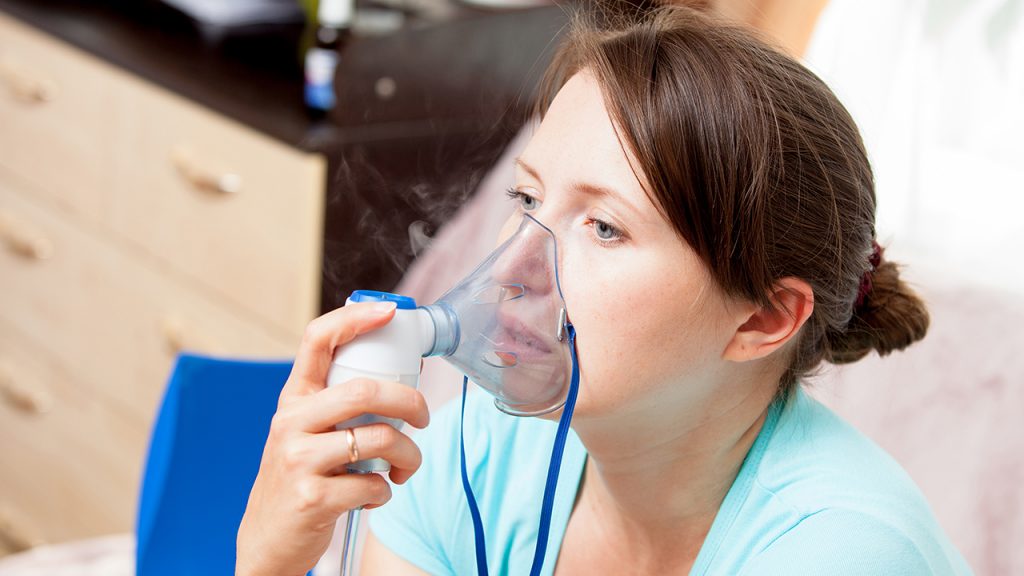Rare Disease Advisory Council would give a voice to Michiganders with rare diseases, advocate says
Laura Bonnell says she is headed to speak to the Senate Policy Health Committee in February about the creation of a council in Michigan.

Young woman doing inhalation with a nebulizer at homeYoung woman doing inhalation with a nebulizer at home
Multiple states have a Rare Disease Advisory Council to communicate the needs of residents of their states who may go underserved, but Michigan doesn’t have one. That’s what Laura Bonnell is trying to change. “Health care impacts everyone. And there is so much that needs to be done in relation to it,” said Bonnell, the founder of the Bonnell Foundation: Living with Cystic Fibrosis.
Bonnell says she is headed to speak to the Senate Policy Health Committee in February about the creation of a council in Michigan. A Rare Disease Advisory Council (RDAC) acts as an advisory body to give the rare disease community a stronger voice in government. The first one was created in 2015 in North Carolina, and there are more than 15 councils around the country.
Bonnell says the council is about communication.
“The council will be able to say, here’s what we know about it. We know what affects this many people, we know that it’s needed. And this is why it’s important. So it’s really about communication. It’s not to point fingers at anyone or to blame anyone. It’s about educating and information,” she says.
This is a bipartisan issue. It doesn’t matter if you’re a Republican or a Democrat, we’re talking about health care for everyone.” —Laura Bonnell, Bonnell Foundation: Living with Cystic Fibrosis
Listen: Laura Bonnell talks about why Rare Disease Advisory Councils are needed.
Bonnell’s two daughters ages 24 and 27 have cystic fibrosis. Every year since they were born, Bonnell has gone to Washington or Lansing to speak with legislators on the issue, which she says has gained momentum over the years. The pandemic has also raised awareness.
“Maybe the entire country and the world understands a little bit more what it feels like to have to isolate, to have to worry about germs, to have to worry about your life expectancy, to worry about your comorbidity, things that probably many people have never had to think about before,” she says.
There’s also more awareness on who has a rare disease.
“One of the things we discovered in cystic fibrosis is that a lot of doctors considered this a Caucasian disease,” she says. A friend and colleague has his own foundation that addresses cystic fibrosis within the African American community.
“He wasn’t diagnosed until he was 54 years old. That is a crime. And it’s because doctors didn’t think that someone who was African American could get cystic fibrosis,” she says.
According to statistics, 5% of African Americans have cystic fibrosis but “many [advocates] believe that’s because they’re being misdiagnosed, not because it only impacts 5% of the population, but because they just haven’t been tested. That’s why it’s so important to get correct stats, so that we know that CF can affect anyone,” she says.
“This is a bipartisan issue. It doesn’t matter if you’re a Republican or a Democrat, we’re talking about health care for everyone.”
Trusted, accurate, up-to-date.
WDET strives to make our journalism accessible to everyone. As a public media institution, we maintain our journalistic integrity through independent support from readers like you. If you value WDET as your source of news, music and conversation, please make a gift today.
